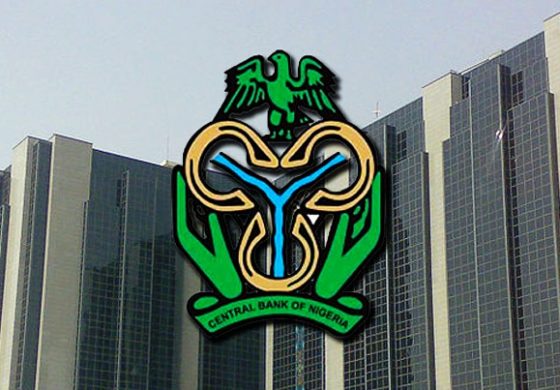President Muhammadu Buhari on Tuesday rejected proposal by the National Assembly to reorder the sequence of the 2019 election timetable released by the Independent National Electoral Commission (INEC) in January.
In a letter titled: Presidential Decision to Withhold Assent to the Electoral Amendment Bill 2018, which was read at plenary by the Senate President, Bukola Saraki, Buhari, exercising his right under Section 58(4) of the 1999 Constitution (as amended), gave reasons why he declined his assent.
The President said, “Some of my reasons include the following:
(a) The amendment to the sequence of elections in Section 25 of the principal act, may infringe upon the constitutionally guaranteed discretion of the Independent National Electoral Commission (INEC) to organise, undertake and supervise elections provided in Section 15(A) of the third statue to the Constitution;
(b).The plan to amend to Section 138 of the principal act to delete two crucial grounds upon which an election may be challenged by candidates, unduly limits the rights of candidates in elections to a free and fair electoral review process; and
(c) The amendment to Section 152 Subsection 325 of the Principal Act may raise constitutional issues over the competence of the National Assembly to legislate over local government elections”. The President’s letter was also read at the House of Representatives by the Speaker, Hon Yakubu Dogara.
But the Senate has not made public whether it will commence a process of overriding the President’s decision as provided in Section 58(4) of the 1999 Constitution. Speaking on Buhari’s refusal to give his assent to the bill, the Senate spokesperson, Senator Aliyu Sabi Abdullahi (APC, Niger), said it is normal for the letter to be read at plenary while the receipt of the letter will be “approved in our Votes and Proceedings tomorrow”.
He said: “The letter has been read. It is a communication from Mr. President like that of his turning down of his assent on the Peace Corps bill. All of them will receive due attention”.
But there is every indication that the issue might have been discussed at a closed door executive session of the Senate moment before the commencement of plenary.
The National Assembly has altered Section 25 of the Electoral Act 2010 that deals with sequence of elections in Nigeria against previous timetable released by INEC. With the amendment, NASS has proposed that the National Assembly elections would be held first, followed by the gubernatorial and state assembly polls, while the presidential election is to hold last.
Meanwhile, the opposition Peoples Democratic Party (PDP) has expressed shock over President Buhari’s failure to assent to the reordering of the sequence of general elections in the country. In a statement issued on Tuesday in Abuja by the party’s National Publicity Secretary, Kola Ologbondiyan, said the PDP was disappointed that despite the urgency with which the National Assembly worked on the bill, the President decided to frustrate the aspiration of most Nigerians.
He said: “The PDP believes in democracy and subscribes to all its tenets including the respect for the powers of the National Assembly to make laws and to amend such laws as occasion demands. “In the light of this development, the PDP, and indeed all well-meaning Nigerians, now eagerly await the final decision of the National Assembly on this amendment.
“As a party, we are not afraid of the 2019 general elections because we know that Nigerians have already rejected President Buhari and his dysfunctional All Progressives Congress (APC).
“Against this backdrop, the PDP assures to provide all the members of our great party a level playing ground to choose a Presidential candidate in a National Convention that promises to be open, free, fair, credible and transparent. “We know that with the support of Nigerians, any candidate that emerges on our platform ahead of 2019 will clinically defeat President Buhari at the polls and lead our nation back to the path of progress, national cohesion and a vibrant economy.”
In another development, the Senate on Tuesday reversed its decision to put on hold confirmation of presidential nominees, when its Committee on Banking, Insurance & Other Financial Committee agreed to screen and confirm the appointment of two deputy governor nominees as well as nominated members of the Monetary Policy Committee of the Central Bank of Nigeria (CBN).
The Daily Times recalls that the confirmation of Federal Government’s appointment of two deputy governors of the apex bank and other persons into its Monetary Policy Committee was withheld because of the existing impasse between the executive and the legislative arms of government.
The Senate had claimed that it would not confirm any nominee from the Federal Government until the Presidency obey its resolution on the Acting Chairman of the Economic and Financial Crimes Commission (EFCC), Mr Ibrahim Magu.
The lawmakers had twice rejected the nomination of Magu, asking the federal government to send another person for confirmation. But the federal government has ignored the resolution on the grounds that the power to nominate any nominee is at the exclusive discretion of the President, saying that such a nominee will continue to function until the President decides otherwise.
Magu is still in charge of the EFCC as the acting chairman of the commission. The Senate considered its action as a matter of national interest especially to save the nation’s monetary system and the economy at large and prevent a major setback as the next meeting of the Monetary Policy Committee takes place on Monday, March 19, 2018.
Chairman, Senate Committee on Media and Public Affairs, Aliyu Sabi Abdullahi said ” the Senate will always consider the overall interest of the nation”, adding that the decision is imperative as an intervention in the economy. According to him, the nation’s economy which has come out of recession needed to be sustained by adequate input from a sensitive body like the MPC.
He added that both chambers of the National Assembly contributed immensely to the coming out of the economy from recession. He said the MPC meeting could not hold in recent past because membership of the Committee has been depleted by the expiration of the tenure of nine out of the 12 members, whose vacant positions were yet to be filled.
Chairman of the Committee on Banking, Senator Adebayo Rafiu, who brought the issue under Order 42 and 52 (Matter of Urgent Attention), appealed to his colleagues to confirm the appointees.
He said given the importance of MPC to Direct Foreign Investment into the country, it is imperative for the MPC to continue directing the affairs of Nigeria’s monetary economy.
The Senate President, Bukola Saraki, said in the interest of the nation, the Senate will always prioritise the economy while he urged the chairman of the Committee to ensure a speedy completion of the confirmation process to enable the MPC have a successful meeting on March 19, 2018.




